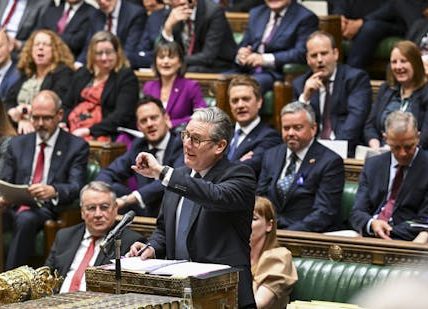Decoding hints that Xi Jinping may be under pressure to relinquish some of his power
Political and economic pressures might force Chinese president and overall leader Xi Jinping to delegate some of his powers to his deputies in a highly significant move. This has prompted some observers and media outlets to speculate that Xi’s grip on power may be waning.
A major part of why this is happening is likely to stem from Xi’s difficulties in dealing with China’s economic woes, which began from a real estate crisis in 2021. For years, the Chinese Communist Party (CCP) has relied on providing economic prosperity to legitimise its rule over the country.
But the continuously lacklustre performance of the Chinese economy over the past four years coupled with Trump’s trade war with Beijing is making recovery a difficult task. And this is likely to be a factor that undermines Xi’s rule.
Get your news from actual experts, straight to your inbox. Sign up to our daily newsletter to receive all The Conversation UK’s latest coverage of news and research, from politics and business to the arts and sciences.
These rumours about Xi started just after the latest meeting, on June 30, of the politburo (the principal policy making body of the party), which brings China’s top leaders together to make major decisions.
For people who don’t follow Chinese politics, the idea of Xi delegating some authority might seem nothing special. However, in understanding China, it’s important to understand that Xi has massive power, and it seems the politburo is signalling there are some changes on the horizon.
What are the clues?
Symbolism and indirect language play an important role in how the communist party communicates with Chinese people. The way it is done comes through slogans or key phrases, which are collectively known as “tifa (提法)”’.
This method of information is important since it shapes political language and debate, and influences how a Chinese, and international, audience understands what’s going on. At first glance, the politburo’s call for enhancing “policy coordination” and the “review process” of major tasks may appear to indicate that the central government is seeking to ensure local officials follow through with Beijing’s agenda.
But there is probably more to the politburo’s statement than meets the eye. The statement said that specialised bodies that exist within the party’s central committee, which includes the powerful commissions that Xi’s loyalists now hold, should focus on “guidance and coordination over major initiatives” and to “avoid taking over others’ functions or overstepping boundaries”“.
For experienced China watchers there are hints here that this powerful decision-making body is making a veiled threat against Xi for holding on to too much power. But the opaque nature of China’s elite decision-making process, where a great deal of backroom politics occurs behind closed doors, means that decoding its messages isn’t always easy.
China’s president Xi Jinping on a public outing, after several weeks when he was not seen in public.
Because of all of this, there is increasing speculation that a power struggle is in progress. This isn’t entirely surprising given Xi’s purge of many senior party officials through anti-corruption campaigns and dominance over the highest levels of government is likely to have earned him many enemies over the years.
Another sign that all isn’t going well with Xi’s regime is the removal of some his allies from key positions within the government. Xi began his anti-corruption campaign in 2012 when he became China’s leader. On paper, while officially framed as a drive to clean up corruption, evidence suggests that the campaign may have been used to remove Xi’s political rivals.
The problem for Xi is that the campaign is being used against his loyalists as well. In October 2023, defence minister Li Shangfu, who was considered a Xi ally, was sacked due to what was later confirmed in 2024 to be from due to corruption charges. But the dismissals of Xi loyalists continued.
Admiral Miao Hua, who was in charge of ideological control and personnel appointment within the armed forces and Xi’s associate since his days as a party official in Fujian province, was suspended from office in November 2024. And in June 2025, he was removed after being investigated for corruption .
The previous month, General He Weidong, who was vice-chairman of the powerful Central Military Commission, was arrested also for alleged corruption. Are the purges a consequence of Xi ceding ground to political rivals? This is a possibility.
But even if it weren’t and the purges are part of a concerted effort to stamp out corruption, Xi’s campaign will not only cast aspersions on his ability to appoint the right people into government, but also create a climate of fear among allies and potentially create further enemies. Either scenario puts Xi on the spot. But since Xi became China’s head of state in 2013, he and his loyalists have taken over leadership of many key national commissions, making him the most powerful Chinese leader since the time of Chairman Mao.
These commissions include the Central Financial Commission, which regulates China’s financial markets, the Central Science and Technology Commission, which aims to accelerate China’s technological progress, and the Central Cyberspace Affairs Commission, which regulates China’s digital content.
Who is on the up?
But it looks like Xi is about to delegate some of his power, and there are some other decisions that may indicate a shift. For the first time since coming into power in 2012, Xi skipped the annual summit organised by the Brics group (named after Brazil, Russia, India, China and South Africa). Instead, from July 5 to 7 this year, Chinese premier Li Qiang, led a delegation to Rio de Janeiro.
This isn’t the first time that Li has represented Xi in high-profile conferences abroad. In September 2023, Li attended the G20 summit in New Delhi, India, and has taken part in Asean summits.
But the Brics appearance alongside with Li’s increasingly prominent role in economic policy making may suggest that his influence is on the rise, while Xi’s is declining. Watch this space.
Chee Meng Tan does not work for, consult, own shares in or receive funding from any company or organisation that would benefit from this article, and has disclosed no relevant affiliations beyond their academic appointment.


